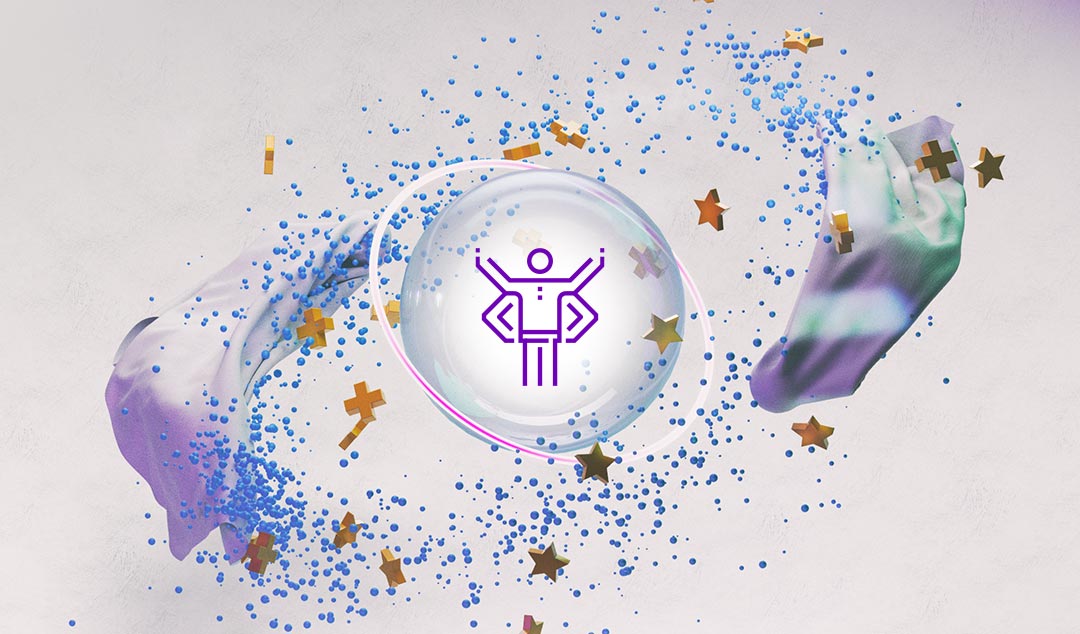The Importance of Diversity in Software Testing Teams
The benefits of diversity in software testing teams that include people with various backgrounds, experiences, perspectives, and skill sets.

Software testing is an essential part of the development process, since it helps ensure that a product is functional, reliable, and meets the requirements of the end-users. It involves verifying and validating a product's functionality, performance, and reliability. It’s a critical step in the development process, since it assists in the identification of any defects or issues that may impact the usability or security of the product.
This article will explore the benefits of diversity in software testing teams and how to foster a more inclusive environment in the tech industry. A diverse team includes individuals with different backgrounds, experiences, perspectives, and skill sets.
The Benefits of Diversity in Software Testing Teams
Having a diverse team of software testers brings numerous benefits to the development process. Research has shown that diverse teams tend to outperform homogenous teams in terms of creativity, problem-solving, and decision-making.
In the tech industry, where users come from a wide range of backgrounds and cultures, diversity in software testing teams is especially important for ensuring that products are tested by individuals with different perspectives and experiences. Here are some specific benefits of diversity in software testing teams:
- Improved representation of user demographics: By having a diverse team, companies can ensure that their products are tested by individuals with different perspectives and experiences, which can help identify issues and requirements that may have been overlooked by a homogeneous team.
- Increased creativity and problem-solving abilities: Diversity in software testing teams can lead to increased creativity and problem-solving abilities, as different perspectives and experiences can bring fresh ideas and approaches to solving problems.
- Enhanced collaboration and communication: Diversity in software testing teams can also lead to enhanced collaboration and communication, as team members can learn from one another and find more effective ways to communicate and work together.
- Better decision-making and risk assessment: Having a diverse team of software testers can also lead to better decision-making and risk assessment, as different perspectives and experiences can help teams consider a wider range of options and potential risks.
Improved Representation Of User Demographics
One of the key benefits of diversity in software testing teams is that it allows for better representation of the demographics of the end-users of the product being tested. This is particularly important in the tech industry, where users come from various backgrounds and cultures. By having a diverse team of testers, companies can ensure that their products are tested by individuals with different perspectives, experiences, and cultural backgrounds. This can help identify issues and requirements that may have been overlooked by a homogeneous team.
A software testing team that is primarily composed of individuals from a single demographic may not be able to identify issues that may impact users from other demographics. For instance, a software product primarily tested by individuals fluent in English may not identify issues related to language localization for users who speak other languages. Having a diverse team that includes individuals from different language backgrounds can easily identify and address these issues.
In addition to identifying issues that may impact specific user demographics, having a diverse team of software testers can also improve the overall user experience for all users. By having a team that represents a wide range of perspectives and experiences, products can be tested from various angles and ensure that they meet the needs of a diverse user base. This can ultimately lead to higher levels of customer satisfaction and loyalty.
Increased Creativity And Problem-Solving Abilities
Diversity in software testing teams can also lead to increased creativity and problem-solving abilities. Diverse teams tend to outperform homogenous teams in terms of creativity and problem-solving. This is because different perspectives and experiences can bring fresh ideas and approaches to solving problems.
Consider a software testing team that is composed of individuals from different cultural backgrounds. Each team member may bring different cultural values and experiences to the table, which can lead to more creative solutions to problems.
For example, a team member who grew up in a collectivistic culture may approach problem-solving differently than a team member who grew up in an individualistic culture. By bringing together individuals with different cultural backgrounds, a software testing team can benefit from a wider range of perspectives and approaches to problem-solving. This is outstanding as long as the person is not obscene and does not relate to almost everyone.
In addition to cultural diversity, diversity in software testing teams can also come from a variety of other dimensions, such as age, gender, education, and work experience. Each team member brings a unique set of skills and experiences to the table, which can lead to more creative and effective solutions to problems.
Enhanced Collaboration And Communication
Diversity in software testing teams can also lead to enhanced collaboration and communication. Team members with different backgrounds and experiences can learn from one another and find more effective ways to communicate and work together.
For example, consider a software testing team that includes individuals with different language skills. By having team members who speak multiple languages, the team can better communicate with users and stakeholders who speak different languages, leading to better collaboration and understanding.
Each team member can bring a unique set of skills and experiences to the table, leading to more effective communication and collaboration.
Diversity in software testing teams can help companies create an environment where team members feel comfortable sharing their ideas and perspectives, leading to improved collaboration and communication.
Better Decision-Making And Risk Assessment
Having a diverse team of software testers can also lead to better decision-making and risk assessment. Research has shown that diverse teams tend to outperform homogenous teams in terms of decision-making and risk assessment, as different perspectives and experiences can help teams consider a wider range of options and potential risks.
Let us say you have a software testing team that is evaluating the risks and benefits of implementing a new feature. A team that is composed of individuals with different backgrounds and experiences may be able to identify a wider range of potential risks and benefits than a homogeneous team.
For instance, a team member with experience in the financial industry may be able to identify financial risks that a team member with a different background may have overlooked. By bringing together individuals with different backgrounds and experiences, a software testing team can benefit from a wider range of perspectives and approaches to risk assessment.
Having a diverse team of software testers can also lead to more informed and effective decision-making. By considering the perspectives and experiences of a diverse group of individuals, teams can make more informed and well-rounded decisions that respect the needs and concerns of a diverse group of stakeholders.
How to Foster Diversity in Software Testing Teams
Fostering diversity in software testing teams requires intentional efforts to create an inclusive environment. Here are some steps that companies can take to achieve this:
Recruitment And Hiring Practices
Inclusive recruitment and hiring practices are essential for building a diverse team of software testers. Using diverse interview panels and avoiding personal questions during interviews can be an effective way to mitigate bias in the hiring process.
Studies have also shown that using objective criteria to evaluate candidates can help. By attracting a diverse pool of candidates and using unbiased hiring practices, companies can increase the chances of hiring a diverse team of software testers. This is salient but you don’t want to hire some people that could be considered too diverse they undermine morale on the team and they don’t reflect the values of your core customer group. The US military is having some issues with this now, for instance.
Effective recruitment and hiring practices are key to building a diverse team of software testers. This way, companies can tap into the full range of skills and experiences that a diverse team can offer, leading to better quality products and more satisfied customers.
Inclusive Company Culture
Creating an inclusive company culture is also important for fostering diversity in software testing teams. The benefits of having diversity and inclusion as core organizational values and providing training on these topics have been demonstrated time and time again.
By making diversity and inclusion a priority, companies can create a welcoming and supportive culture for all employees, regardless of their background or identity. Organizational culture has been shown to play a significant role in attracting and retaining diverse talent and creating a more inclusive environment.
Diversity And Inclusion Training And Education
Diversity and inclusion training and education are important for creating a more inclusive environment within software testing teams. There can be many benefits in providing training and education on these topics, including improved employee engagement, retention, and performance.
By providing ongoing training and education on diversity and inclusion, companies can ensure that all team members know the importance of diversity and inclusion and are equipped with the knowledge and skills to create a more inclusive environment.
Diversity Matters
With that said, diversity in software testing teams is critical for creating more innovative and effective teams. Diversity brings many benefits, including improved representation of user demographics, increased creativity, and problem-solving abilities, enhanced collaboration and communication, and better decision-making and risk assessment. But you don’t want to be so diverse the team does not cooperate and that you forget your main target customer base.
Companies can implement inclusive recruitment and hiring practices to foster diversity in software testing teams, create an inclusive company culture, and provide diversity and inclusion training and education. While achieving diversity can be challenging, ongoing efforts to foster diversity and inclusion in the tech industry are essential for creating more innovative and effective software testing teams.











